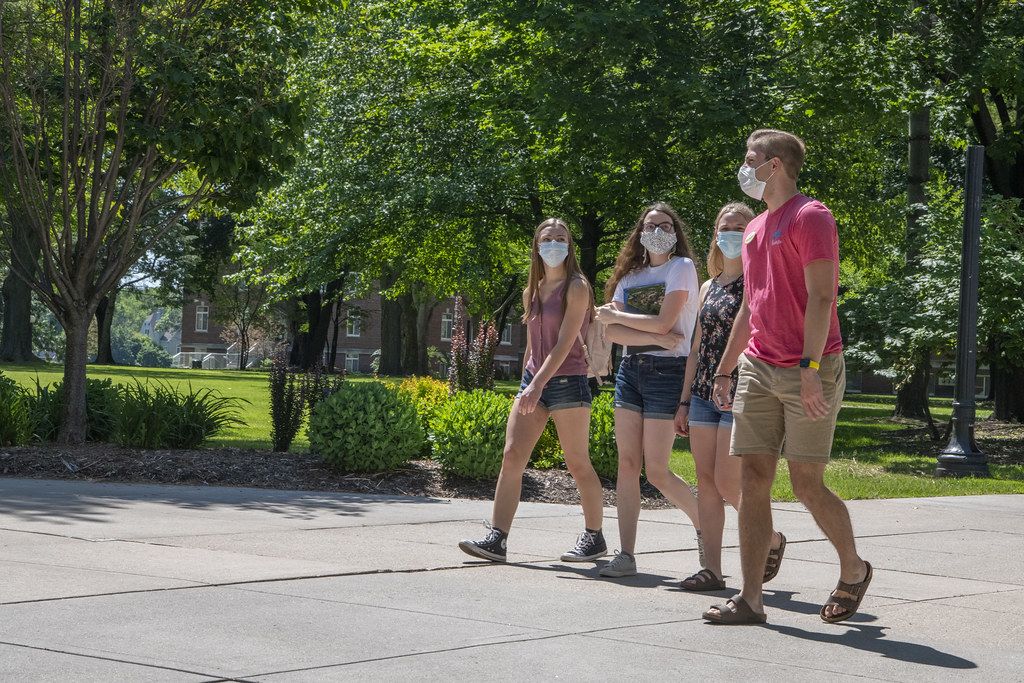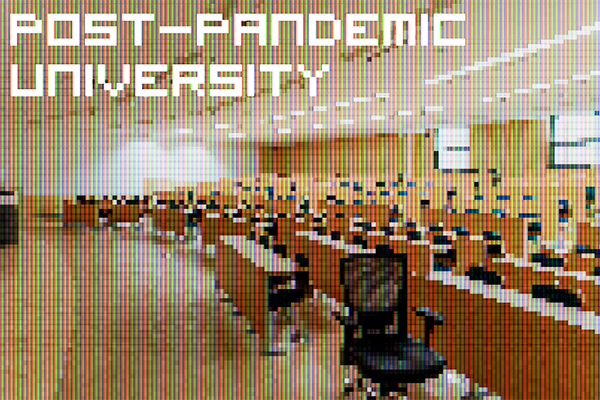

Beyond online learning: Researchers launch live experiment to imagine the post-pandemic university

Researchers from more than 50 universities have launched a project which aims to piece together a coherent vision for Higher Education’s post-pandemic future, while simultaneously operating as a ‘live experiment’ in how it might work.
The project, ‘Building the Post-Pandemic University’, is being hosted by the Faculty of Education, is open to academics around the world and already involves contributions from scholars in 14 different countries.
Its main goal is to generate ideas that will give universities a basis on which to reimagine their post-COVID future, beyond immediate concerns about how to teach and manage students while enforcing social distancing. Instead, participants are contributing evidence and ideas about the pandemic’s potential long-term effects: such as how it might transform students’ choices about higher education, the management of student and staff wellbeing, and the opportunity it represents to take decisive action to address ongoing challenges such as institutional racism and inequality of access to higher education.
At the same time, the project itself is being used as a live laboratory in which to test out various ideas about how academics can collaborate, share ideas and support public information and decision-making differently. The organisers are, for example, trialling ‘decentred’ online conferences, in which most of the action takes place away from the live discussions and across stretched-out timelines; different models for fast-tracking research findings in response to current events, and the podcasting of research audio diaries to exchange ideas and stimulate discussion.
This is an attempt to create a social infrastructure online that will enable us to look at what’s going on and what we can do now to shape the future. It’s pretty clear that universities are going to have to do something more imaginative than take the activities they would normally run in lecture theatres and seminar rooms and put them online
Dr Mark Carrigan, a digital sociologist at the Faculty of Education, who led the organisation of the opening conference, said: “The pandemic is clearly going to transform universities and at the moment we don’t really know how. What we do know is that this is a fast-moving topic and not something we can respond to at the traditional, and often pretty glacial pace, of scholarly communication.”
“This project is an attempt to create a different space – a sort of social infrastructure online that will enable us to look at what’s going on and what we can do now to shape universities in the future. It’s pretty clear that universities are going to have to do something more imaginative than take the activities they would normally run in lecture theatres and seminar rooms and put them online.”

The project is being guided by a team of academics from 13 universities in six countries and went ‘live’, in the traditional sense, last week, with an opening conference on Zoom featuring 55 speakers from around the world.
This covered issues such as how far teaching practices are likely to change permanently and how they can be supported; whether remote and blended learning will make the traditional ‘student experience’ a thing of the past; the lasting effects of the pandemic on social inequality and how universities might counteract this; and the responsibilities of universities as public leaders in times of crisis – as well as some interesting findings about their recent performance in that regard.
The project conferences are, however, adopting a ‘flipped’ format. Speakers provide position statements, with supporting data and evidence, which are posted online in advance. While the live events themselves involve panel discussions based on these conversation-starters, with a live chat function to involve the audience, much of the actual discussion takes place away from the main event and during the days and weeks on either side, meaning that participants do not actually have to attend at all.
The project website is also acting as an open-access platform for the publication of both ‘rapid’ research responses to call-outs on live issues, and longer, feature-length pieces to stimulate discussion with the wider research community. Through it, scholars will be able to release, discuss and refine emerging evidence and ideas about the pandemic’s implications for teaching, labour, policy, student affairs and other subjects, as events develop and change.
The team is also assembling a collection of research audio diaries, which will be released as a podcast. More conventionally, participants will be contributing to a special issue of the academic journal, Globalisation, Societies and Education later this year, and a book in 2021. Further ‘decentred’ conferences are also planned, starting with an event on digital technology, and the issues it raises for teaching, research and university administration, in October.
“By making this open-ended, and in a sense unrestricted, we are already involving a much bigger community of researchers and scholars than if we were just taking the traditional route of doing conferences and workshops,” Carrigan said. “That is happening because circumstances have forced us to rewrite existing models of participation and apply different timelines. In that sense, it could be a model – as well as a source of information – for universities as they try to do things differently.”
More information can be found at https://postpandemicuniversity.net/